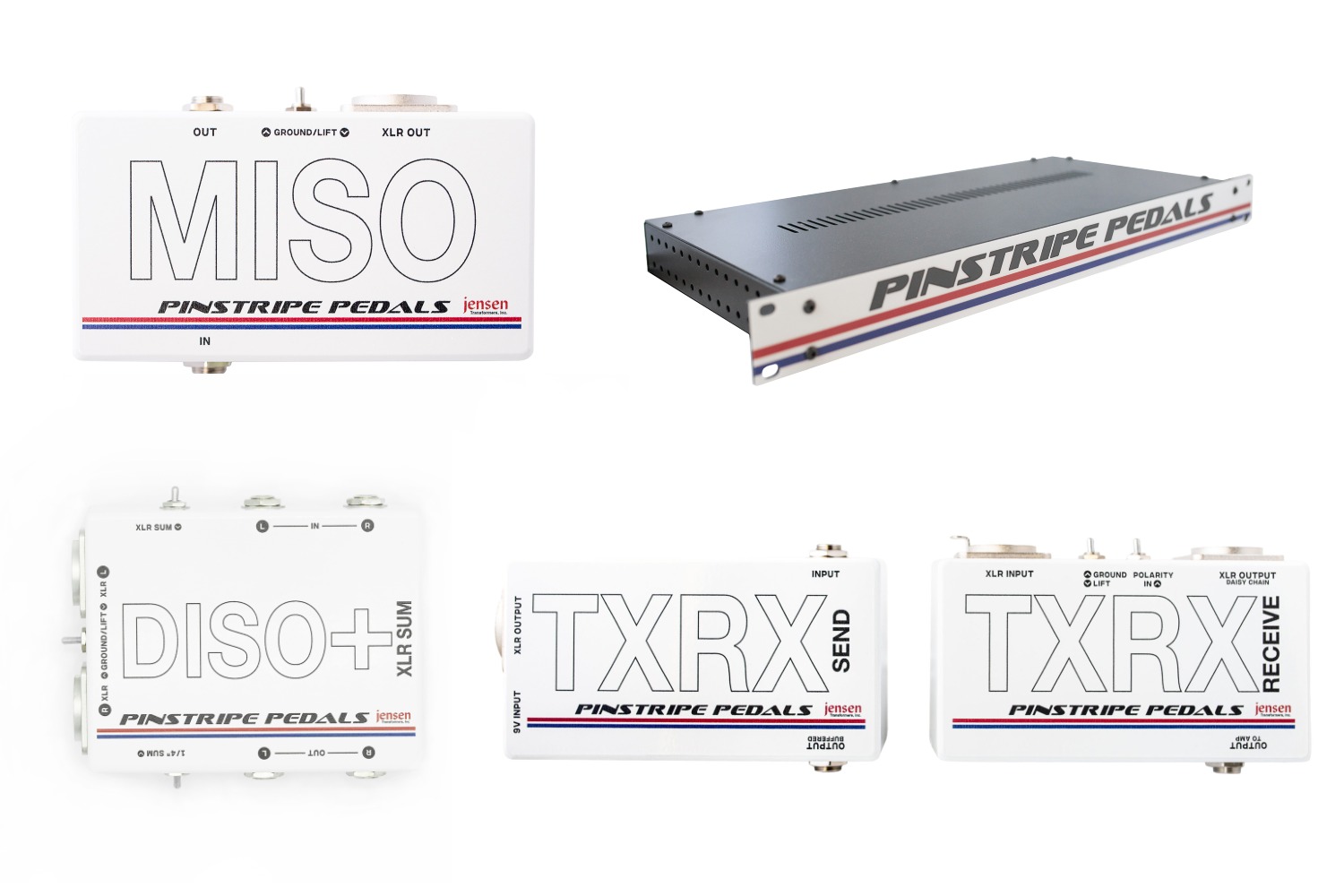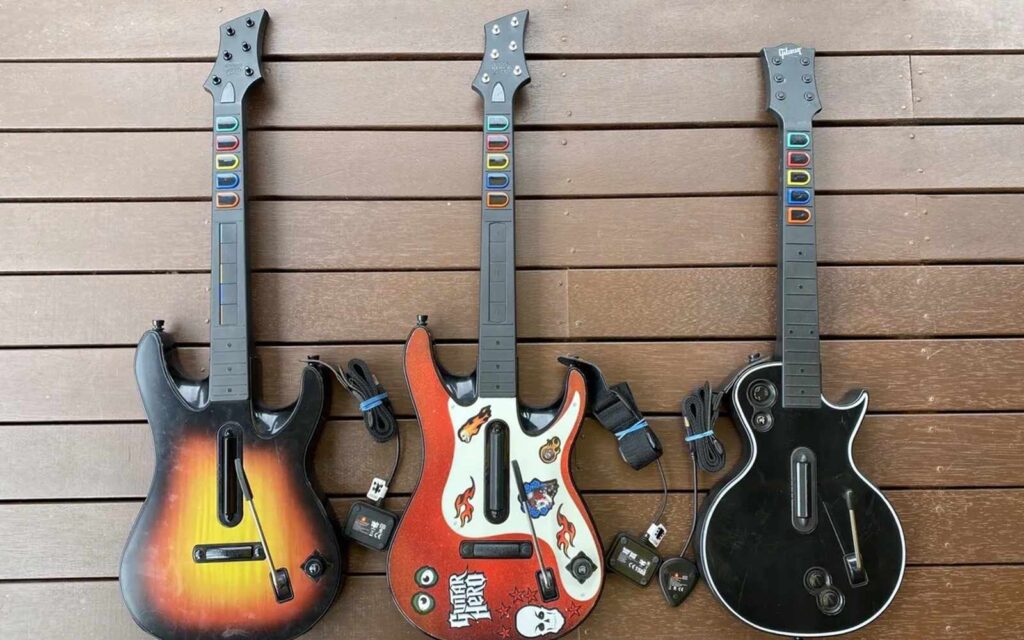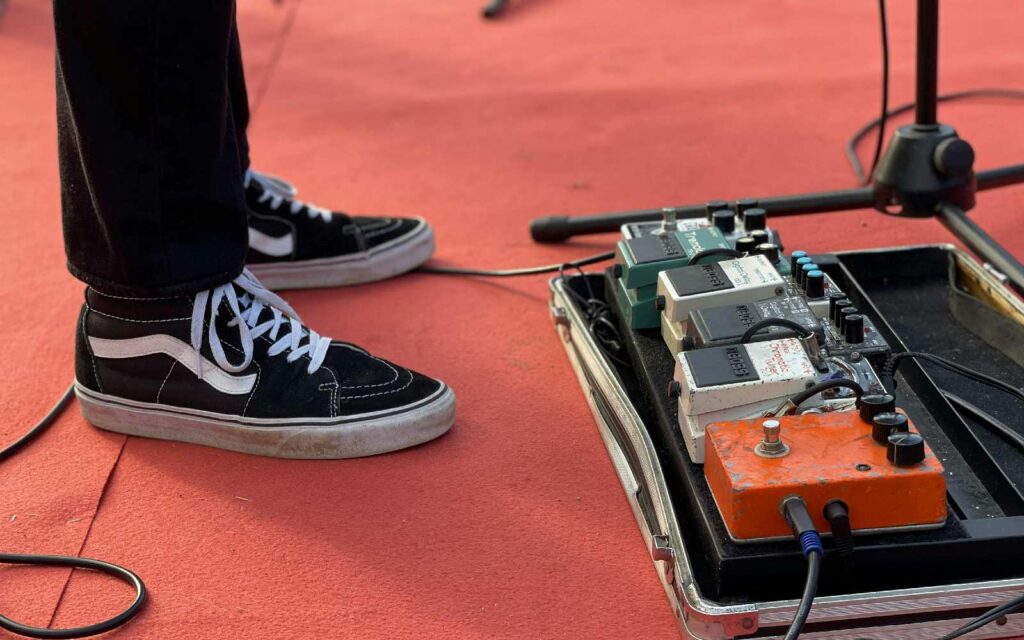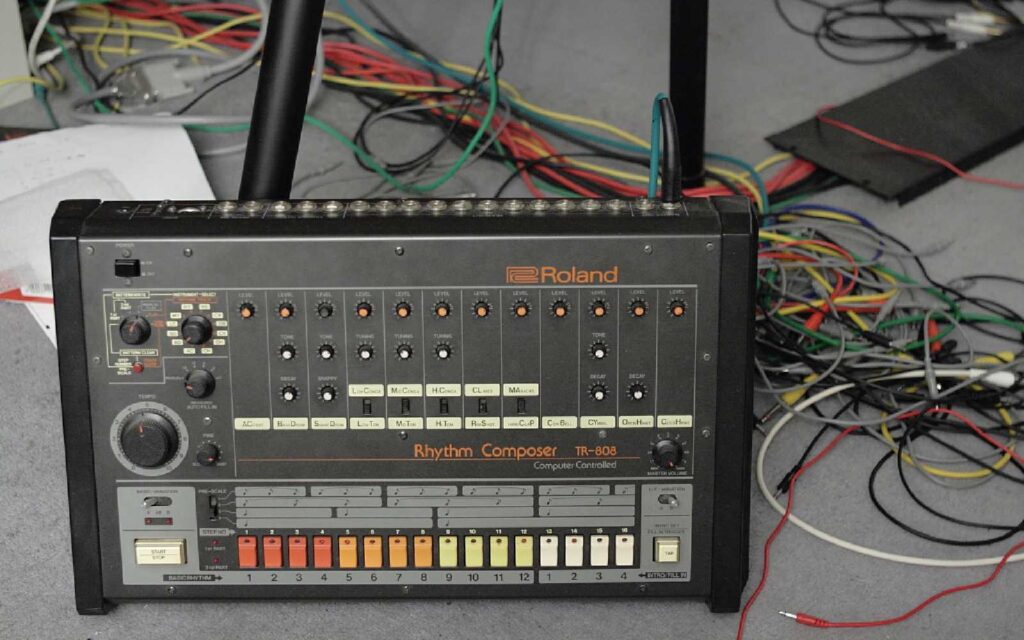Diving deep into the pride of America's mid-west for direct boxes and routing options designed for professionals
Pinstripe Pedals are a growing company based out of Oklahoma, and quickly becoming the pride of the mid-west. Despite their name, Pinstripe Pedals produce direct boxes and routing options designed for the professional musician or sound engineer wanting to capture clear and consistent sound, by using solely Jensen Transformers, an industry standard used by the likes of Radial and Neve in their flagship products. Their cables use Neutrik and their connectors are Switchcraft, so you can be certain your input is preserved when it comes out the other end to be recorded in a studio or amplified at a live show.
Summary:
- Pinstripe Pedals are a growing company based out of Oklahoma, and quickly becoming the pride of the mid-west.
- Pinstripe Pedals design and hand-build their products specifically to fit on pedalboards.
- Pinstripe Pedals are a company focused on creating incredible products for the working musician with a focus on quality, routing solutions, and integrity.
Read up on all the latest interviews, features and columns here.
Pinstripe produce the DISO Plus, a line isolator designed for live use, the LWDI, a box that, as its name suggests, is a Little While DI box. Pinstripe also have cables and pedalboard mounting hardware available to mount their pedalboard-friendly products onto your board. Some competitors offer products that aren’t so aesthetically pleasing, and Pinstripe buck that trend with both their rack-mount and traditional box-shaped products.
Pinstripe Pedals design and hand-build their products out of Oklahoma in the United States of America. They’re designed specifically to fit on pedalboards, in the case of the DISO Plus, ‘D’ for dual and ‘ISO’ for Line Isolator, as well as the MISO, a mono/single input version of the DISO. The DISO is available in an XLR summing mod version, allowing you to sum your output or keep it true stereo depending on your situation. Keep in mind the outputs can be toggled so you can keep everything patched and switch between ‘rehearsal’ and ‘live’ settings at the flick of a switch!
They also offer the TXRX-M system, two little pieces designed to buffer your signal for the stage or studio and experience no signal loss at ranges of up to 300 feet via a ‘Send’ box and a ‘Receive’ box at the other end – complete with handy phase polarity switches and a ground lift. The aforementioned LWDI is a Jensen-loaded DI with a 1⁄4” input, 1⁄4” output/through, an XLR output, and a ground lift. What’s more, these are also available as a rackmount version in the DISO-R & DISO-HR, a dual line isolator available in full rack or half-rack (HR) version, LE-6, a six channel direct box, the RSW2+2, 1U unit packed with dual stereo direct boxes, and finally the SM2+2, a rackmount combo of direct boxes and line isolators.
In use, the SM2+2 is a great place to start. While DI boxes are traditionally used to take a clean signal before your tone is sculpted, shaped, and warped by pedals and an amplifier, they can also be used to split a signal to be treated separately. It’s increasingly common for live musicians to use amp emulators and profilers, which have suffered as a multitude of options can also require some pretty complex wiring both before, within, and after the unit itself. Pinstripe’s DISO Plus, their mainstay line isolator, allows you to treat your signal before it hits an amp profiler to ensure there’s optimal signal driving your amp, this being a line isolator’s main selling point. This is not to be used solely for amp emulators however, tube and solid state amps alike can benefit from optimum signal!
The DISO Plus isolates your signal and offers things like protection from accidental phantom power damage when using an active DI that requires 48V ground lift to kill hum, and maintains your signal better than a DI box would, allowing your signal to hit your profiler the way it would hit a physical amp! Pinstripe’s SM2+2 offers both of these in one, a line isolator to isolate, protect and treat your signal, before it’s split to both a DI box and your amp. These products aren’t solely used for guitar and bass though, signal and percussion pads also have some limitations, and Pinstripe’s products offer the same signal buffering and phantom protection as they do for guitar, as well as having an option available for use with either 1⁄4” or XLR inputs and outputs depending on your pad!
If you haven’t looked into Pinstripe pedals, it’s time you did because they’re likely solving a problem you’re having, with or without you realising it! Completely controlled tests can be difficult to conduct, so we often don’t realise how much signal loss and degradation affects our final tone until we find a company like Pinstripe who preserve our sound so it’s amplified as we’d intended it to be.
Routing can be complex whether you’re using amplifier emulators for touring, or recording guitars, basses, and sample pads in a studio. Not only can they capture clean splits of your sounds, they can preserve that sound over the long cable runs often required for both studio and live applications alike. They offer boxes specifically designed for integration into a pedalboard aesthetically, sonically, and physically, but also 1U rack mount options for studios or live rigs where an entire band may be using rack mounted emulators and profilers, and floor real estate is a commodity. Rack units can be left permanently patched for ease of use, and the rack mount options also feature more ins and outs than their pedalboard mounted brothers and sisters.
If that weren’t enough, Pinstripe also produce pedalboards themselves to keep your stage extra tidy. Pinstripe Pedals are a company focused on creating incredible products for the working musician with a focus on quality, routing solutions, and integrity.
For more product information, head to Pinstripe’s website. For local enquiries, reach out to Gsus4.







